Posted on 06/6/2025 19:30 PM (CNA Daily News)
 St. Catherine’s Monastery in the Sinai Peninsula, Egypt. / Credit: Harmony Video Production/Shutterstock
St. Catherine’s Monastery in the Sinai Peninsula, Egypt. / Credit: Harmony Video Production/Shutterstock
ACI MENA, Jun 6, 2025 / 15:30 pm (CNA).
The future of St. Catherine’s Monastery in Egypt’s Sinai Peninsula remains a source of controversy, with tensions rising after a recent court ruling that transferred the site to state ownership while granting the Church only usage rights.
The decision was met with strong opposition from the monastery’s monks, who have now closed its doors to visitors in protest.
Despite reassurances from Egyptian authorities, the ruling has alarmed the Orthodox Church, which described it as a “dangerous precedent.”
The opposition has extended far beyond Egypt.
The Ecumenical Patriarchate of Constantinople along with the Orthodox Patriarchates of Jerusalem and Alexandria, the Churches of Greece and Cyprus, and the Greek Union of Theologians have all voiced apprehension. Meanwhile, other churches have chosen to remain silent — a stance that has only complicated the situation further.
Greece has emerged as the strongest political voice in defense of the monastery, issuing formal statements and engaging in high-level diplomacy to protect the sacred Orthodox site. Greece’s minister of foreign affairs, Georgios Gerapetritis, met with Egypt’s minister of foreign affairs, Badr Abdelatty, in Cairo on Wednesday where they discussed the status of St. Catherine’s.
Archbishop Damianos of Sinai, Pharan, and Raitho described the situation as “judicial manipulation.” He explained that since 1980, the monastery has submitted ownership documents for 71 sites and retained official receipts as proof. However, the state has consistently refused to recognize these claims, even as similar cases were fully acknowledged elsewhere. He expressed frustration that the monks are now being treated as if they’ve illegally seized land and are being asked to pay to use it.
He added that a previous agreement had been reached between the Church and Egyptian authorities, with Greek government representatives present. However, the deal was recently altered unilaterally.
“We have protected this treasure since the sixth century,” he said. “And now we’re told we can use it — but we don’t own it.” With sorrow, he continued: “I am 91 years old, and I have lived here since I was 27. Imagine how great the pain is!”
The monastery’s legal representative, Christos Kompiliris, explained that negotiations over the agreement lasted nine months and were nearly finalized when talks abruptly ended just before the signing. A court ruling was then issued that contradicted the core of that understanding. He warned that the ruling allows the state to reclaim the property if the monks ever leave — for any reason — placing their continued presence at the mercy of unpredictable political or administrative decisions.
“This new legal status puts the monastery’s entire future at risk,” he said.
Kompiliris also expressed concern that the ruling not only affirms state ownership but also permits the confiscation of 25 of the 71 properties belonging to the monastery.
Behind the scenes, some believe the controversy stems from the “Great Transfiguration” project, launched in 2021 by the Egyptian president to turn the St. Catherine area into a fully integrated tourist destination. Critics argue that the plan threatens the site’s sacred monastic character. Others, however, view the ruling as a matter of Egyptian sovereignty, intended to prevent the monastery from evolving into an independent entity, something akin to a “new Vatican.”
This story was first published by ACI MENA, CNA's Arabic-language news partner, and has been translated for and adapted by CNA.
Posted on 06/6/2025 19:16 PM (Detroit Catholic)
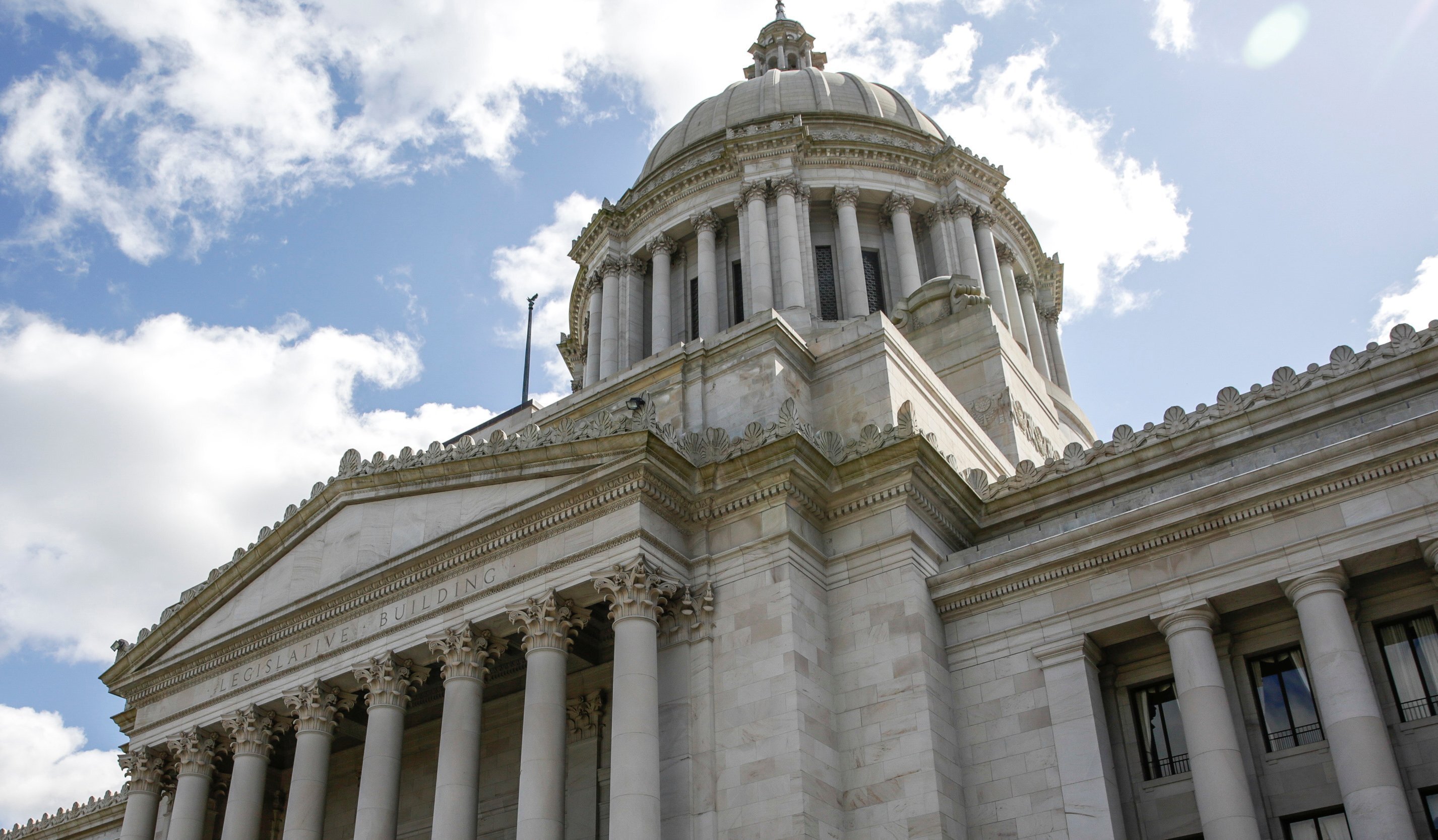
Posted on 06/6/2025 19:13 PM (Detroit Catholic)
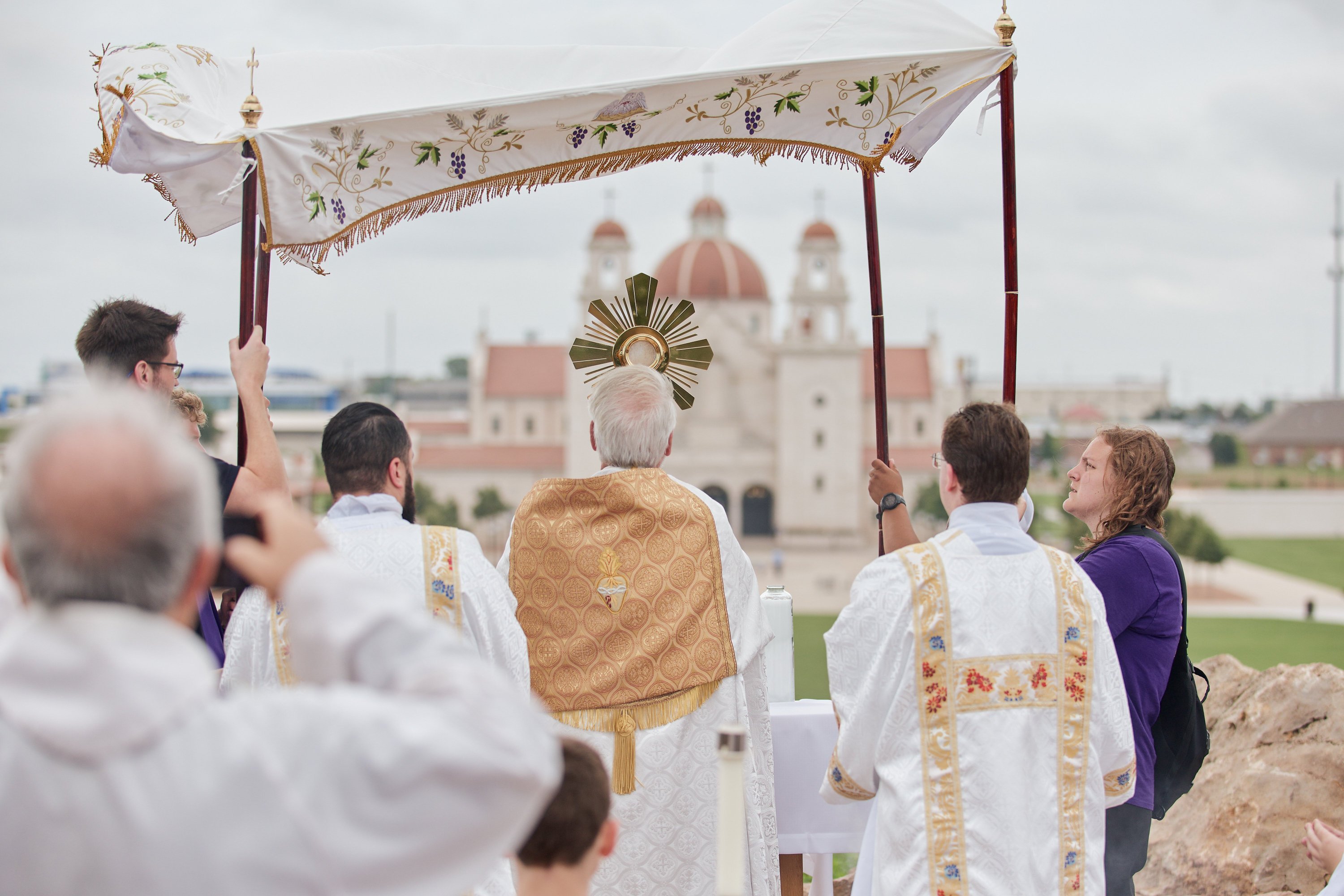
Posted on 06/6/2025 19:12 PM (Detroit Catholic)
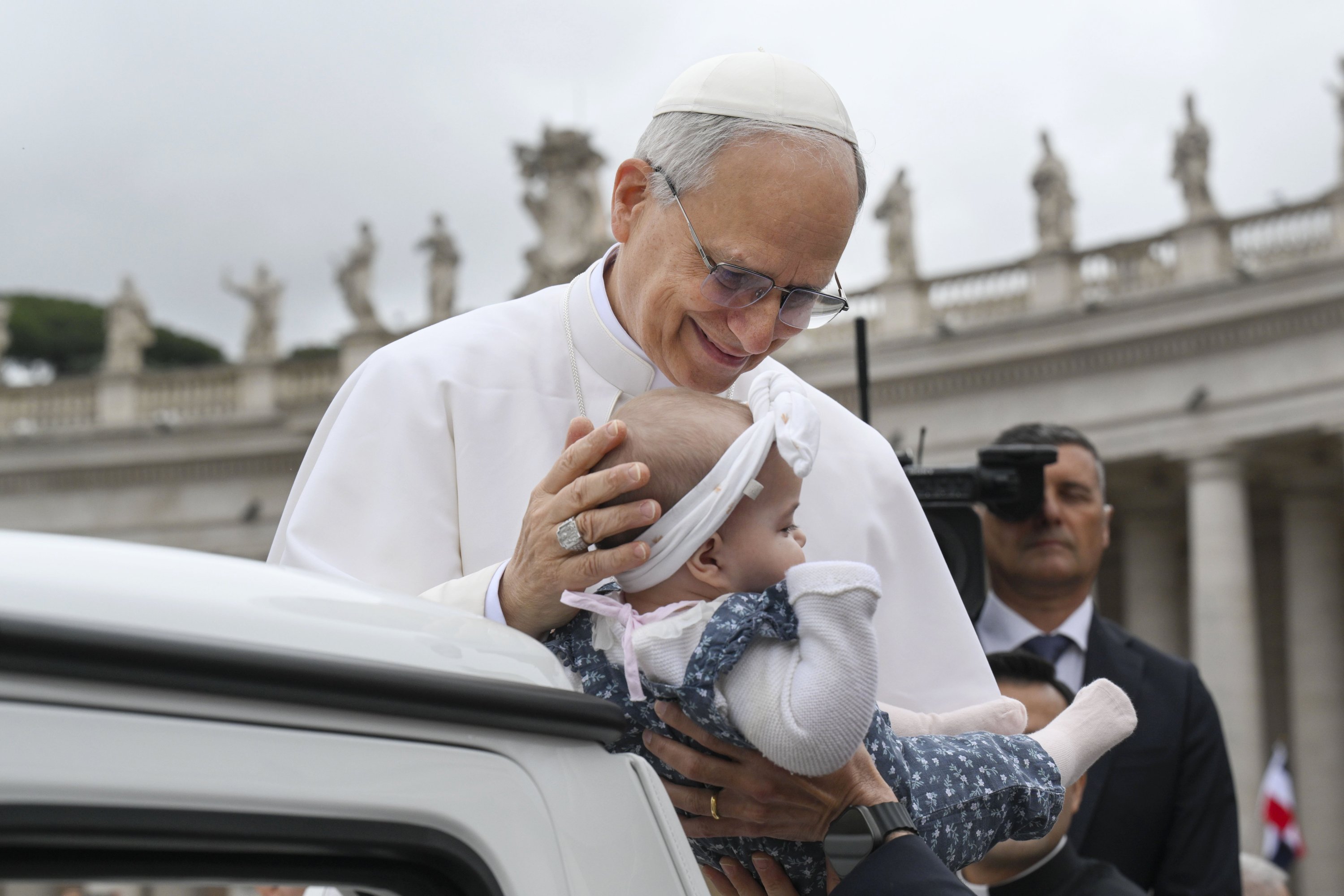
Posted on 06/6/2025 19:09 PM (Detroit Catholic)
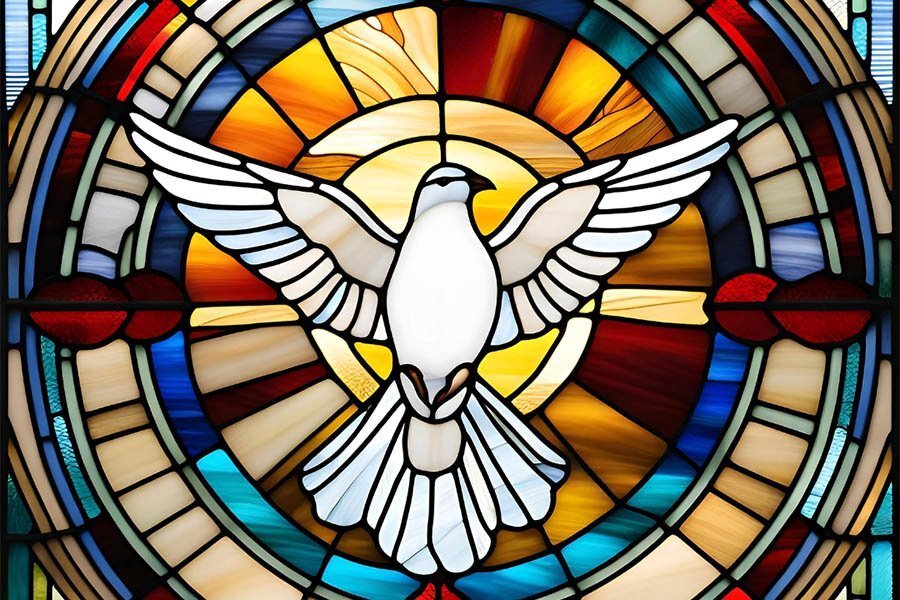
Posted on 06/6/2025 19:08 PM (Detroit Catholic)
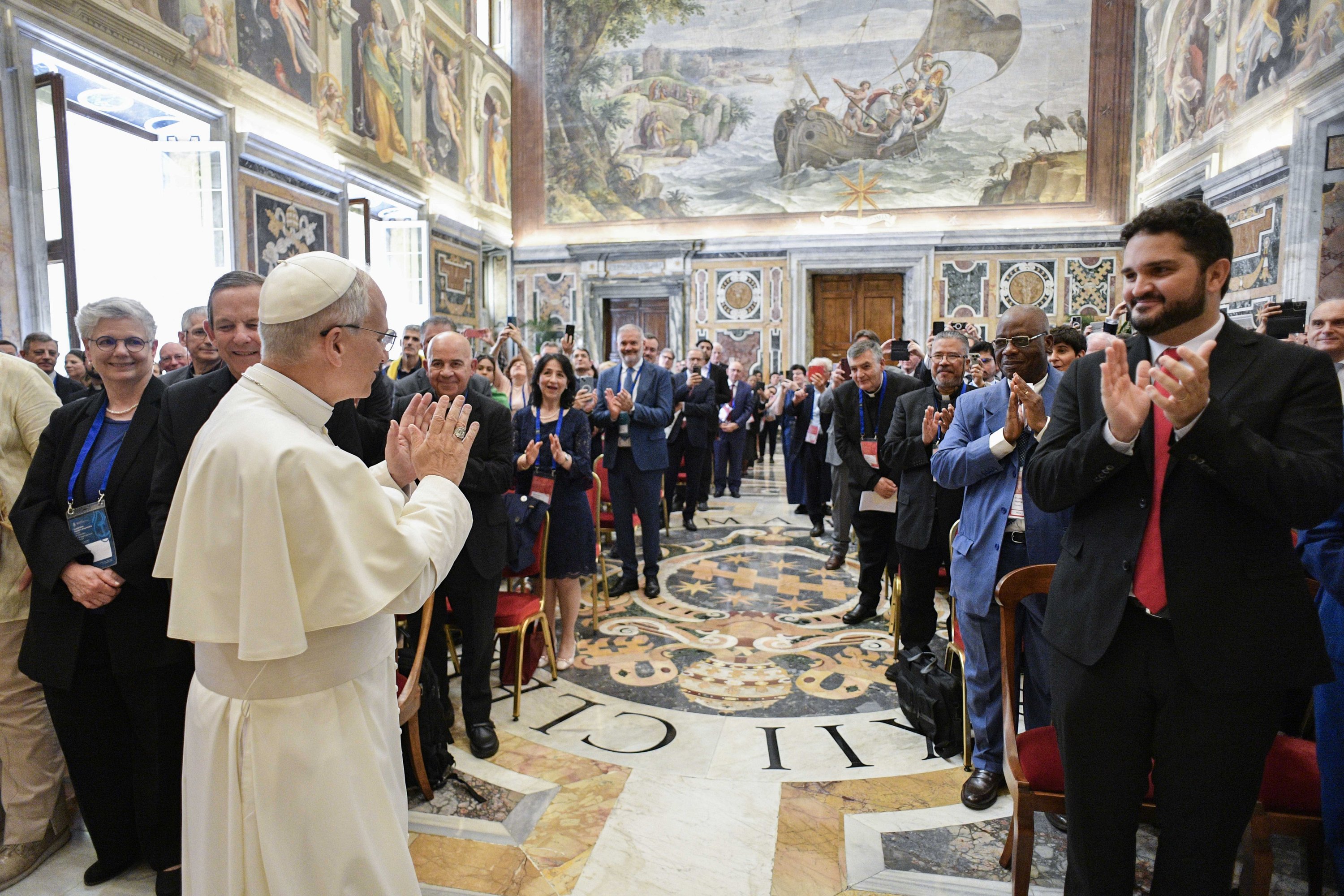
Posted on 06/6/2025 18:45 PM (CNA Daily News)
 Pope Leo XIV speaks with prisoners who attended his general audience on June 4, 2025. / Credit: Vatican Media
Pope Leo XIV speaks with prisoners who attended his general audience on June 4, 2025. / Credit: Vatican Media
Vatican City, Jun 6, 2025 / 14:45 pm (CNA).
Two prisoners currently serving sentences in Rome’s Rebibbia prison obtained special permission to participate in Pope Leo XIV’s general audience this past Wednesday.
“We received an official invitation from the Vatican to participate in the audience, and the inmates asked the magistrate for special permission, which was granted,” Father Marco Fibbi, the prison’s chaplain, told ACI Prensa, CNA’s Spanish-language news partner. Fibbi accompanied them to St. Peter’s Square with the prison’s director, Teresa Mascolo.
“It was a great gift for the inmates to be able to exchange a few words with the pope,” the Italian priest said.
“We were all very moved because it was Pope Leo XIV’s third general audience. We had the privilege of being among the first to meet him in person. We were impressed by his accessibility, attention, and closeness with which he listened to what the inmates had to say,” Fibbi commented.
The words the pope spoke during the catechesis seemed especially fitting for those who are imprisoned: “He said that we can all be called by the Lord at some point in life; even in the worst moments when we feel most inadequate, the Lord always comes to meet us.”
The inmates at Rebibbia have committed crimes — some very serious — but they have the right to start over, Fibbi said. “All prisons are places of separation, of expiation of punishment, and therefore of much suffering and pain. But very often I have had experiences that show that all is never lost and that one can be reborn,” said Fibbi, who has been doing prison ministry at the facility for the last six years.
He added: “We are called, as prison chaplains, to nurture this hope, fostering the deep motivation to return to society in a different way or to use their time in prison as a positive moment.”
As soon as they learned they would be able to greet the pope in person, the inmates got busy making him a gift. Thanks to one of the penitentiary’s craft workshops, they handcrafted a small silver cross that reproduces the Cross of Hope, embossed with the anchor logo and the Christogram.
The prison has various spaces where inmates can develop their creativity. For example, in the workshop called Metamorphosis, they transform the battered barges that transport migrants from the Mediterranean to Europe into various objects, such as rosaries, which are then delivered to the Vatican.
“One of the first things he [Francis] did as pope was to wash the feet of those detained in the Casal del Marmo prison, a gesture he performed almost every Holy Thursday during the 12 years of his pontificate. Until shortly before his death, he wanted to visit Regina Caeli prison, although he couldn’t celebrate Mass with them because he had just left the hospital,” Fibbi recalled.
He even decided to make an exception during the 2025 Jubilee, dedicated to hope, and open a holy door in the Roman prison as well.
“In the bull announcing the Ordinary Jubilee of 2025, Spes non Confundit, he named the prison as the first place to bring hope,” the priest explained.
Fibbi shared that the prison’s detainees experienced the April 21 death of Pope Francis with great sadness and wanted to be in the front row at his funeral.
“I clearly saw them participate with great emotion in Pope Francis’ funeral. They loved him very much,” the priest noted.
Pope Leo XIV’s gesture of wanting to receive the two detainees in the audience appears to continue Francis’ legacy.
This story was first published by ACI Prensa, CNA’s Spanish-language news partner. It has been translated and adapted by CNA.
Posted on 06/6/2025 18:15 PM (CNA Daily News)
 Stills from a video shared with EWTN News and taken by the pilgrims on May 30, 2025, while the procession was in the Diocese of Tulsa, Oklahoma, show Catholic participants in the procession walking and singing while a young man on the sidelines, speaking through a bullhorn and walking alongside the crowd, deplores Eucharistic devotion as “idolatry.” / Credit: Photos courtesy of Jason Shanks
Stills from a video shared with EWTN News and taken by the pilgrims on May 30, 2025, while the procession was in the Diocese of Tulsa, Oklahoma, show Catholic participants in the procession walking and singing while a young man on the sidelines, speaking through a bullhorn and walking alongside the crowd, deplores Eucharistic devotion as “idolatry.” / Credit: Photos courtesy of Jason Shanks
National Catholic Register, Jun 6, 2025 / 14:15 pm (CNA).
After disruption by anti-Catholic protesters in Oklahoma and Texas in recent days, organizers of the National Eucharistic Pilgrimage say they fully expect that the group of protesters, organized principally by a Protestant church in Texas, will continue to follow and attempt to disrupt the cross-country Eucharistic procession for the remainder of its route to Los Angeles.
“I’m calling on all Catholics to show up for Jesus. This is our opportunity to step out in faith, to step out in witness, and to witness to the real presence of Jesus in the Eucharist,” said Jason Shanks, president of the National Eucharistic Congress, at a June 5 press conference.
The pilgrimage, which began in mid-May in Indianapolis, is a 3,300-mile, 10-state trek that has already brought a group of eight young Catholic “Perpetual Pilgrims” to the heart of Texas with the Eucharist, and it will conclude in Los Angeles in late June.
The goal of the pilgrimage, which is a continuation of the unprecedented four national pilgrimages that took place last summer, is to bear public witness to the Church’s teaching that Christ is truly present in the Eucharist and to invite members of the public to join the processions and celebrate their belief in the Eucharist as well.
Videos shared with EWTN News and taken by the pilgrims on May 30, while the procession was in the Diocese of Tulsa, Oklahoma, show Catholic participants in the procession walking and singing while a young man on the sidelines, speaking through a bullhorn and walking alongside the crowd, deplores Eucharistic devotion as “idolatry.”
More recently, on June 4 in Dallas, the pilgrims encountered small groups of protesters walking with bullhorns and holding signs with anti-Catholic messages. Videos show large numbers of Catholics processing down a suburban street with the Eucharist while singing hymns in Spanish. Some of the protesters, including those holding anti-Catholic signs, appeared to be families with small children.
Shanks described the protests as “unexpected,” given that the pilgrimages last year did not engender pushback of this kind. He said the protests, which have swelled in recent days to some 40 to 50 “well-organized” people, are being principally organized by the Church of Wells, a Protestant congregation based in a small town about three hours southeast of Dallas.
The website of the Church of Wells, a small but influential and controversial congregation, includes numerous diatribes against Catholic belief, including belief in the real presence of Christ in the Eucharist.
The idea that the Catholic view of the Eucharist would be subject to debate, and even to ridicule, is “not new for Catholics,” Shanks noted, and dates back all the way to the Bread of Life discourse in John’s Gospel.
Still, Shanks said the shouting and the debates taking place amid the pilgrimage have been a source of “interior suffering” for the pilgrims, and he called on all Catholics to respond not by engaging with protesters directly but rather with a “silent witness” to the truth of the Catholic faith with a spirit of “charity and humility.”
“We’re asking Catholics to come and evangelize through their silent witness, and their walk, because these protesters are focused on antagonizing, trying to get into debates, so they can put it online … because that’s how they raise money,” he continued.
Shanks said pilgrimage organizers have been engaged behind the scenes with law enforcement and security personnel to make sure the pilgrimage is a safe experience for all involved, though there is no reason to believe at this time that the protests will become violent, he added.
He also expressed appreciation and pride for the Perpetual Pilgrims, who have had to deal with the vocal protesters day after day, and urged Catholics to keep the pilgrims in their prayers.
“I’m so proud of how they’ve been representing us as a Church. … We need to be, as a Church, united in solidarity with them,” Shanks said.
At the Thursday press conference, several of the pilgrims spoke directly about the challenges of encountering the protests and the solace they’ve received through constant prayer.
Ace Acuña spoke about how the experience has led him to a deeper understanding and appreciation of Jesus’ assurances about the reality of persecution for those who follow him. Biblical passages about enduring persecution have never come “more alive” for him than during this time, Acuña said.
“I honestly feel like my prayer has never been more fervent in my life,” he said, adding, quoting Acts 5:41, that it remains “a joy to suffer insults for the sake of the Name.”
Johnny Silvino Hernandez-Jose, another pilgrim, spoke about how important it has been for him to remember the reason why they are doing the pilgrimage and “not let it be overshadowed by something so little, compared to Jesus Christ.”
For Leslie Reyes-Hernandez, although the words of the protesters sting, she said she sees this challenge as a deeper calling from the Lord — an invitation to “hear all of the things that he was hearing on his way to the cross.”
Reyes-Hernandez said: “There were people that were in support of him being crucified, but also people who were mourning, like Our Lady, which is an image we can continue to resemble.”
“We get the blessing to be with Our Lord [at] the cross every day, and it’s drawing my faith even closer and closer to him.”
This story was first published by the National Catholic Register, CNA's sister news partner, and has been adapted by CNA.
Posted on 06/6/2025 17:45 PM (CNA Daily News)
 Princeton Professor Robert George speaks to “EWTN Pro-Life Weekly” anchor Abigail Galván on Thursday, June 5, 2025. / Credit: “EWTN Pro-Life Weekly”
Princeton Professor Robert George speaks to “EWTN Pro-Life Weekly” anchor Abigail Galván on Thursday, June 5, 2025. / Credit: “EWTN Pro-Life Weekly”
Washington, D.C. Newsroom, Jun 6, 2025 / 13:45 pm (CNA).
A nationwide grassroots movement aspires to bring Americans together through shared beliefs in both God and country, a prominent political philosopher said this week.
“Faith in God, fidelity to spouses and families, patriotism, and love for country and community have always been the glue that held Americans together,” said Professor Robert George in an interview on “EWTN Pro-Life Weekly.”
George, a legal and political scholar at Princeton University, appeared on the show to discuss the founding of the social movement and grassroots initiative Fidelity Month, aimed at bringing the country together after years of divide.
Fidelity Month “is a positive, grassroots movement to heal division and restore unity in our nation. It celebrates June as a season of recommitment to God, our spouses and families, our communities, and country,” the Fidelity Month website states.
The movement’s website features upcoming events, webinars, and guides on how people can contribute to the monthlong observance. Participants are urged to pray, promote Fidelity Month in their neighborhoods and on social media, and organize events of their own.
The inspiration, George explained to “EWTN Pro-Life Weekly” anchor Abigail Galván, came after he read a 2023 Wall Street Journal article citing survey data that showed significant declines in Americans’ belief in the importance of religion, family, and patriotism.
“The one area in which the faith of Americans increased,” George noted, “was in the importance of money. But material things are secondary to what really matters: God, marriage and children, and our communities.”
George said he helped found Fidelity Month to encourage a recommitment to the values that have historically united the country.
“If we’re going to have unity and strength as a people,” he said, “it has to come from some common commitments.”
The scholar emphasized the importance of both civic and spiritual foundations: “First, we have our commitments as Americans to the Constitution, our system of government, and our republican civic order. But by itself, that’s too thin.”
“Americans have always relied on more than that. Across races, ethnicities, and religions, there’s been a shared belief in the importance of God. Our national motto is ‘In God we trust,’ and we say ‘One nation under God’ in our Pledge of Allegiance.”
“Over the years, I’ve witnessed increasing secularization and an inversion of values,” he said. “People are prioritizing wealth, power, influence, prestige, and status instead of faith, family, honor, integrity, beauty, and knowledge — things that are ends in themselves, not just means to other ends.”
Fidelity Month, George hopes, will serve as a rallying point for Americans to reclaim the enduring values that have long been the bedrock of national unity.
“Part of the Fidelity Month effort is to restore the integrity of our society by restoring faith, by restoring the institution of the family, by reviving our understanding of what really matters, more than money, more than power, more than influence,” he said.
Posted on 06/6/2025 17:30 PM (Detroit Catholic)
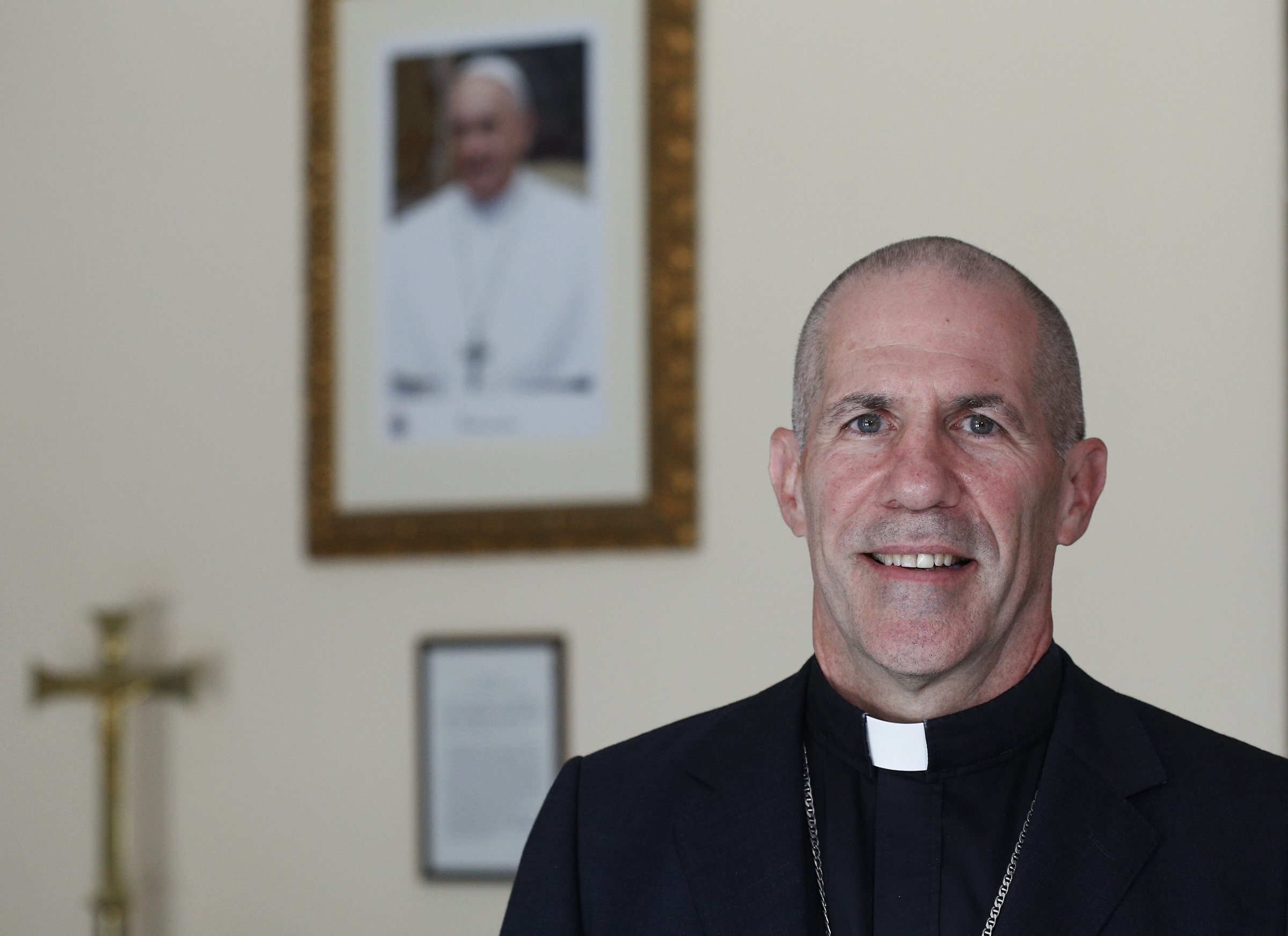
Former Detroit auxiliary bishop’s impact still felt at Sacred Heart Major Seminary, St. Joan of Arc Parish; funeral will be June 9